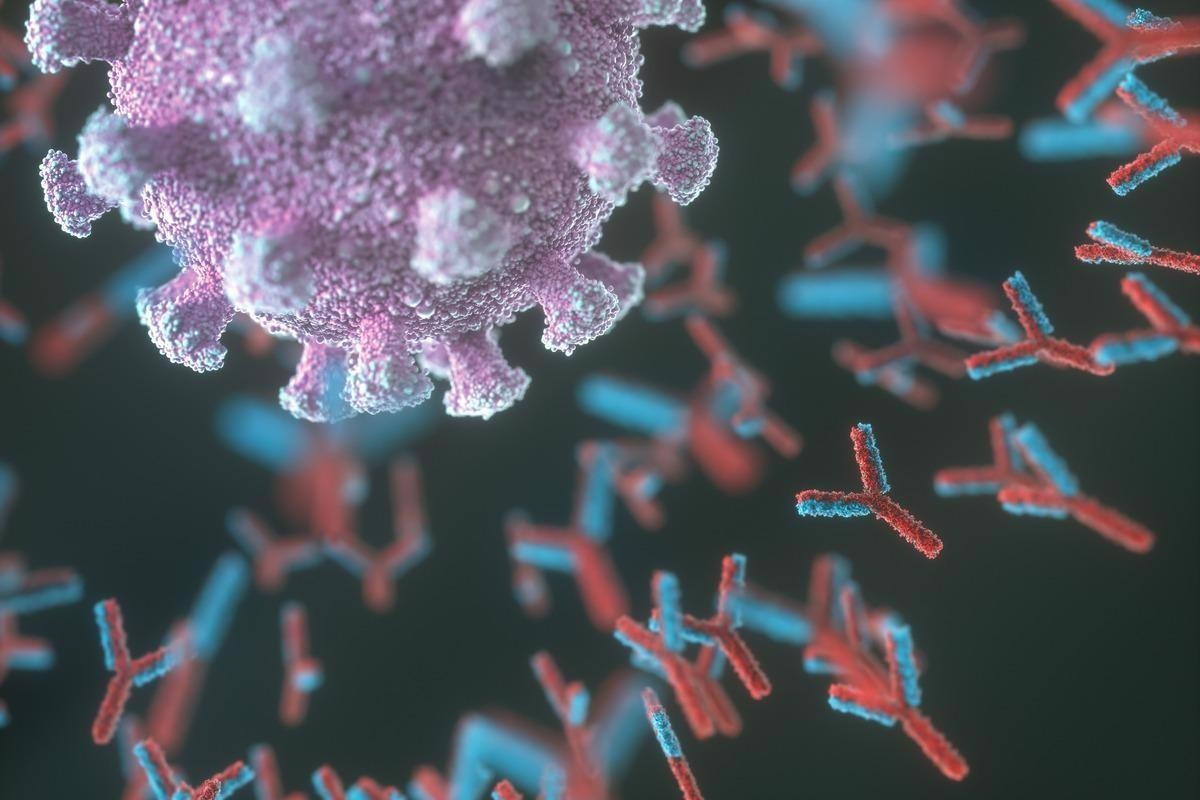In a research letter published in the Journal of the American Medical Association (JAMA), researchers carried out a seroprevalence and vaccination coverage study in Los Angeles County (LAC).
Immunity to severe acute respiratory syndrome coronavirus-2 (SARS-CoV-2) can be achieved by vaccination or previous infection. This potential protective immunity should exist at a population level to effectively mitigate the pandemic of coronavirus disease 2019 (COVID-19). However, various reports of antibodies (Abs) against SARS-CoV-2 diminishing after a certain period have been documented, and therefore, it is critical to monitor the seroprevalence of these Abs and the other cell-mediated immune responses under the adaptive arm of the immune system.

Research Letter: Seroprevalence of Antibodies Specific to Receptor Binding Domain of SARS-CoV-2 and Vaccination Coverage Among Adults in Los Angeles County, April 2021: The LA Pandemic Surveillance Cohort Study. Image Credit: ktsdesign/Shutterstock
The study
In the present study, researchers investigated the presence of Abs specifically to the receptor-binding domain (RBD) of the spike protein (S) of SARS-CoV-2 as a result of partial or complete vaccination or natural infection. The Abs against RBD (RBD Abs) were assessed by Luminex xMAP SARS-CoV-2 assay. This is a cross-sectional study conducted at eight testing sites in LAC between April 9 and 25, 2021, on residents living within a 15-mile radius. Participants were selected and randomly invited for testing using a proprietary database.
Findings
Initial screening selected about 5,500 eligible adults, and about 2,314 (42%) of them had provided consent for testing. Among them, antibody testing was performed on 1,335 individuals. Females represented 59.2% of the tested participants, a little over 50% of them were aged between 30 and 49 years, 13.9% were Asians, and 9.4% were Black. About 30% of the study population had an annual household income below $50,000.
The authors observed that the Black population (52.5%) and people from low-income households (61.2%) had lower rates of protection. Only 28.8% of non-vaccinated individuals with prior history of infection had Abs specific to S RBD, and it was observed that the seroprevalence rate was relatively higher in poorer regions (71%). The RBD Abs in the fully vaccinated population remained consistent, with over 99.7% of them demonstrating the presence of RBD Abs.
Conclusions
The present study's findings report the existence of potential protective immunity or Abs against RBD SARS-CoV-2 in over 72% of the residents of LAC.
Despite LAC's high seroprevalence, a surge in COVID-19 cases was reported in July 2021, indicating the difficulty of achieving herd immunity. Blacks and poorer people showed a disparity in vaccination rates, and increased efforts are being made to target these groups.
Another important finding is the high percentage of RBD Abs in the non-vaccinated adult population from high-poverty areas. Antibodies were seen in all those with documented COVID-19 in the past, even after several months of infection, suggesting that RBD Abs elicited by SARS-CoV-2 infection do not wane. This study included self-reported vaccinations, and the presence of Abs as immunity markers instead of assessing cell-mediated immunity and selection biases could limit the validity of the observations made.
Journal reference:
- Sood, Neeraj, Olivier Pernet, Chun Nok Lam, Angela Klipp, Rani Kotha, Andrea Kovacs, and Howard Hu. "Seroprevalence of Antibodies Specific to Receptor Binding Domain of SARS-CoV-2 and Vaccination Coverage Among Adults in Los Angeles County, April 2021: The LA Pandemic Surveillance Cohort Study." JAMA Network Open 5, no. 1 (January 20, 2022): e2144258, DOI: https://doi.org/10.1001/jamanetworkopen.2021.44258, https://jamanetwork.com/journals/jamanetworkopen/fullarticle/2788249